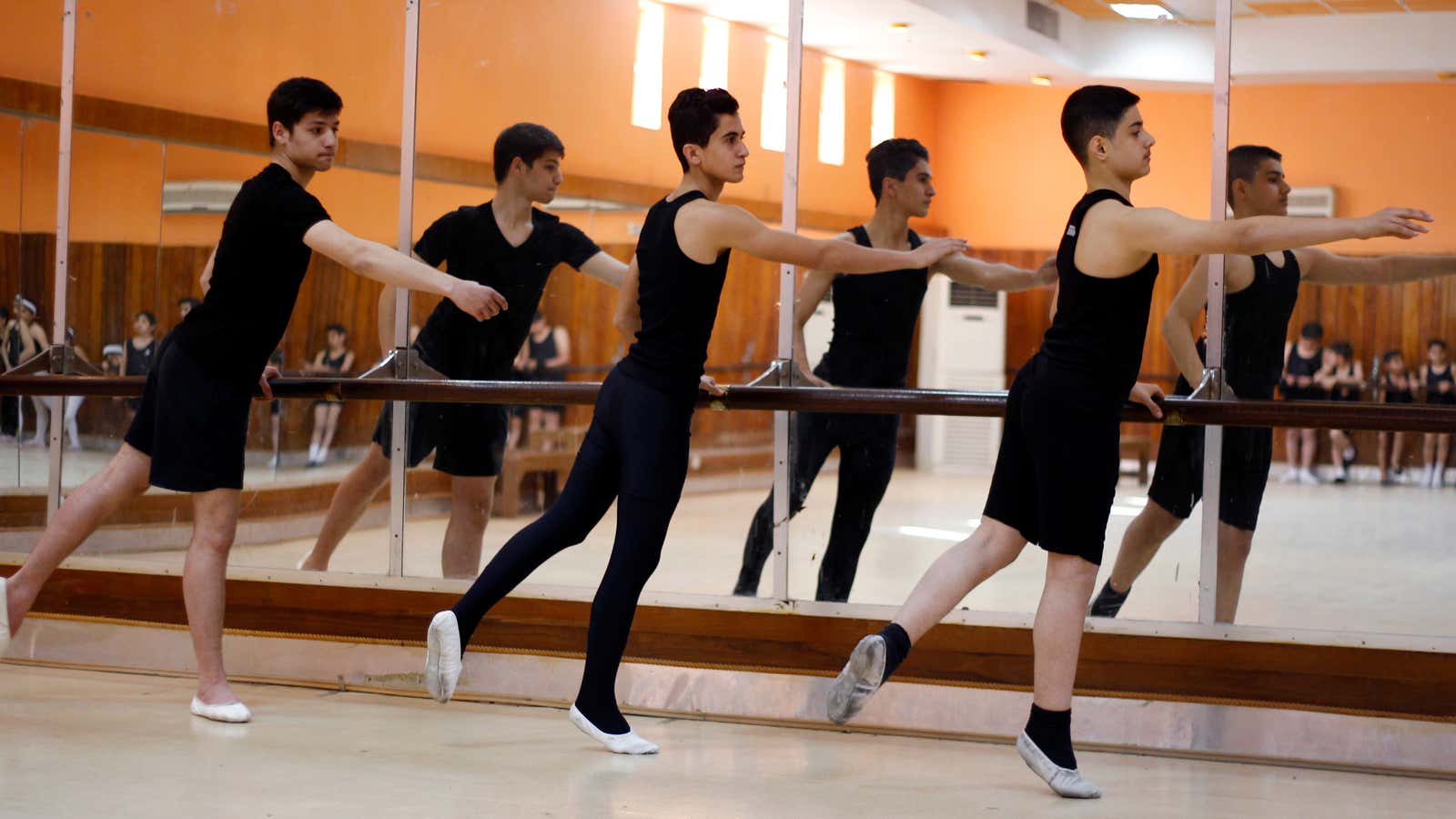On Friday (Aug. 23), Good Morning America host Lara Spencer reported a story about six-year-old Prince George and his penchant for ballet lessons. “I have news for you, Prince William: We’ll see how long that lasts,” Spencer said as she wrapped up the story.
The other GMA hosts and guests laughed, but Spencer’s seemingly offhand comment was quickly met with a backlash. Celebrities and viewers alike took to Twitter to voice their concern about her message. On Saturday, Spencer apologized for her comments on her Instagram. Since outrage grew over the weekend, Spencer had several ballet dancers on Good Morning America on Monday, even as the cast of the “Cher” musical protested outside the Good Morning America studios.
The backlash against Spencer doesn’t just come from the fact that she was punching down by criticizing a six-year-old to GMA‘s 4.5 million viewers. It’s that she was criticizing him for doing—and enjoying—a stereotypically female activity (though men have always danced ballet and make up some of the most famous dancers over the past century, Rudolf Nureyev and Mikhail Baryshnikov among them).
We know that strict gender stereotypes can be detrimental to children and the adults they become: they can prevent children from studying topics or participating in activities they may enjoy or have talents in; or can limit the skills they develop. What we know today of toxic masculinity comes from many decades of strict masculine stereotypes, reinforced subtly and overtly in everything from advertising to offhand comments from adults. These “rules” decree that boys shouldn’t play with dolls or take a ballet class. And this is the framework Spencer’s comments seemed to draw from.
Parents (including the duke and duchess of Cambridge) are starting early to show their kids that they don’t have to stay within the traditional bounds of masculinity or femininity. As more girls are participating in traditionally male activities, like sports, more boys are doing leisure activities that were stereotypically female.
Ballet in particular has become a vehicle through which boys and men are exploring new definitions of masculinity and sexuality. “I hope to be part of a generation that can change the boundaries of what ballet can do, a generation that says we’re going to represent everyone, not just the stories that have been told before,” New York City Ballet dancer Preston Chamblee told the New York Times Magazine last year.
In this context, Spencer’s comments seem like they’re out of another era. Fortunately, viewers seem to have gotten that message.
